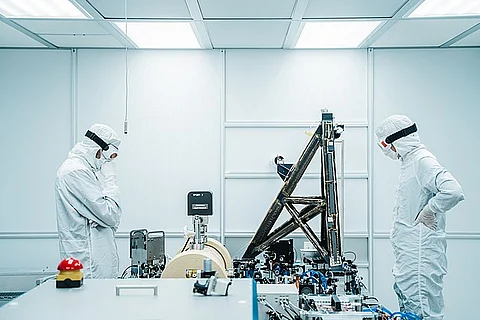

Donald Trump’s budget policies have triggered deep cuts to U.S. scientific research, particularly in climate science and public health, with federal agencies like the National Science Foundation (NSF) and National Institutes of Health (NIH) facing significant reductions.
The NSF’s budget is set to drop by 56%, with a 73% cut in staff and fellowships, impacting graduate students most severely.
Over 1,650 NSF grants and 3,500 NIH grants have been terminated or frozen, stalling critical studies on climate change and infectious diseases.
Sally Johnson, an Earth scientist at NASA and NOAA, noted a 60% reduction in her team, jeopardizing the preservation of 30 years of climate data essential for weather forecasting and disaster response.
“We won’t be able to afford to continue providing the free and quality tools and services to make our data stores searchable, viewable, usable, and accessible,” Johnson said.
The cuts are driving a brain drain, with scientists seeking opportunities abroad or outside their fields.
An anthropologist studying climate impacts in Madagascar is relocating to Oxford University after her fellowship funding was threatened, unable to continue her work under current U.S. policies.
Similarly, a materials scientist laid off from a renewable energy firm in Massachusetts struggles to find work amid tariffs and reduced support for green technologies.
The Australian Academy of Science has launched a program to recruit U.S. scientists, with 75 applying in its first three months, signaling a loss of talent that could undermine America’s global scientific standing.
The funding crisis extends beyond academia, affecting industries reliant on scientific innovation.
The Nuclear Physics Laboratory at the University of Illinois, a hub for advancements in drug discovery and medical diagnostics, faces a drastic reduction in graduate student funding, from $15 million over four years to $1 million for one year.
These cuts threaten future breakthroughs, as seen in the lab’s history of producing Nobel laureate Rosalind Yalow, whose work revolutionized medical testing.
The private sector, including renewable energy, is also feeling the impact of tariffs and reduced federal support, ceding U.S. expertise to countries like China and Japan.
The ongoing reductions risk long-term consequences for U.S. innovation and and economic growth.